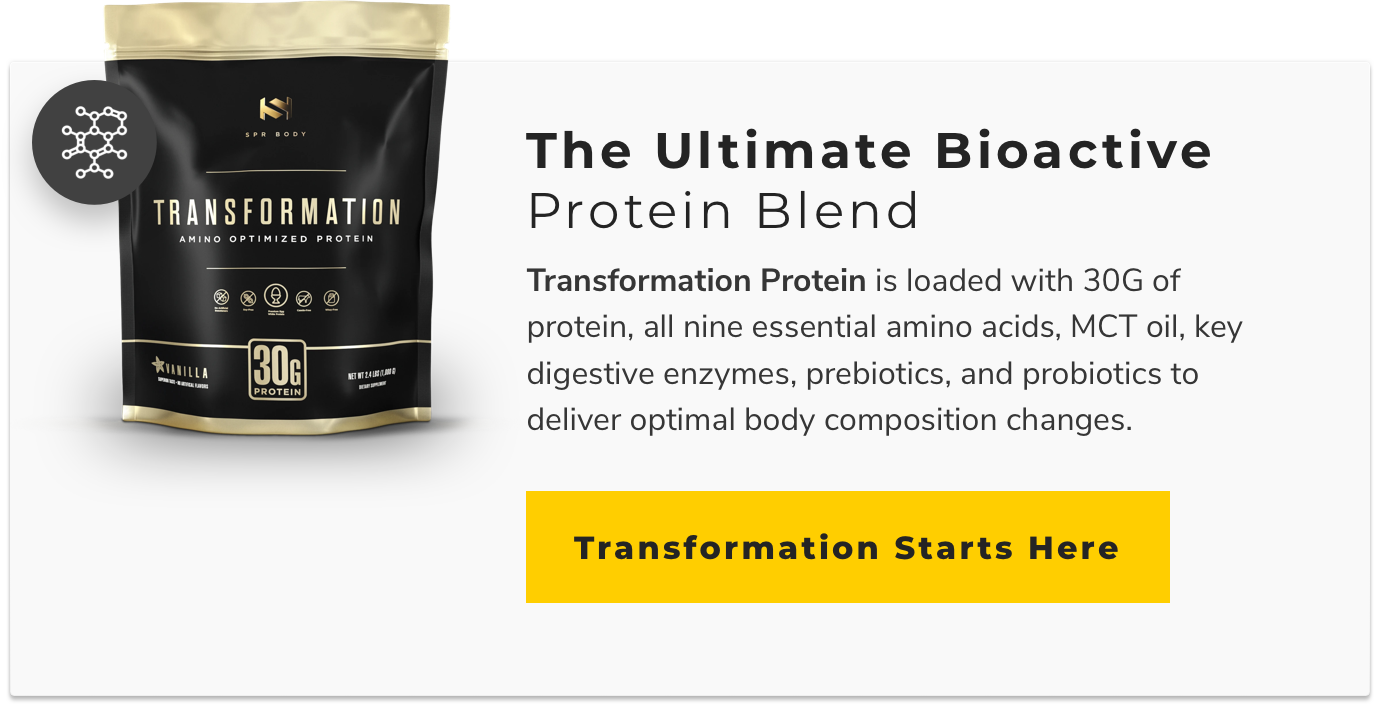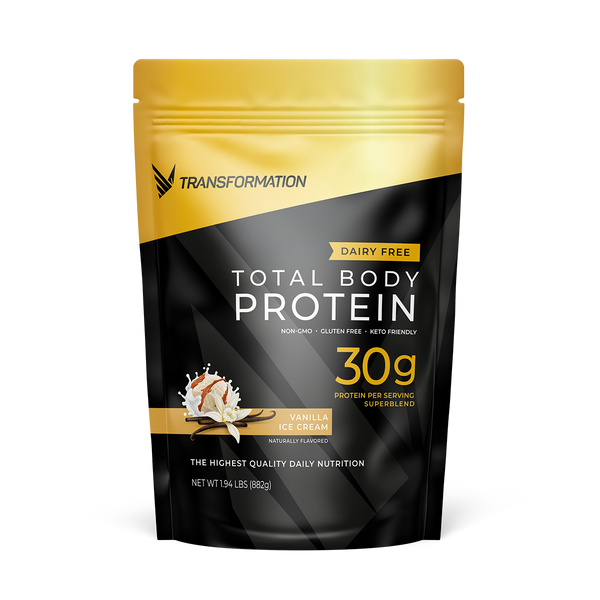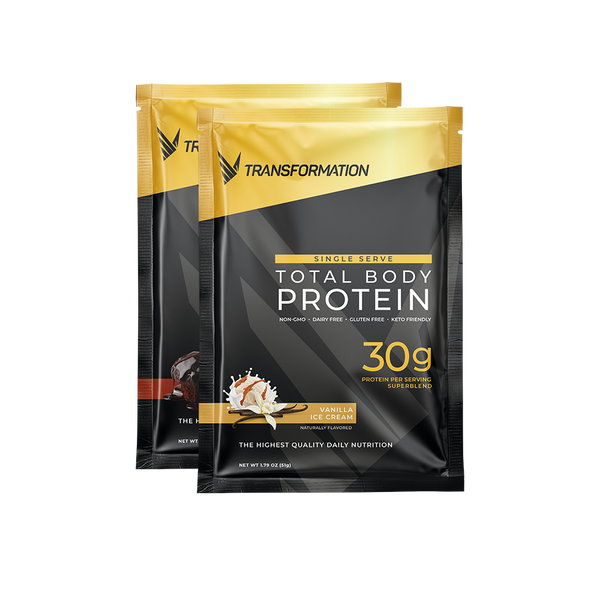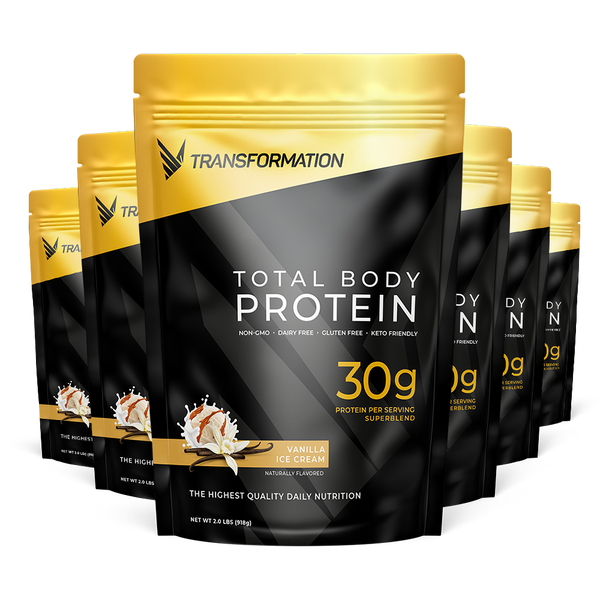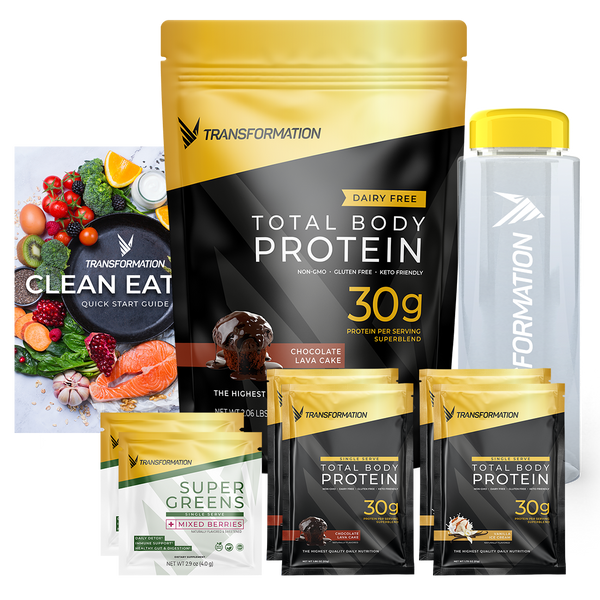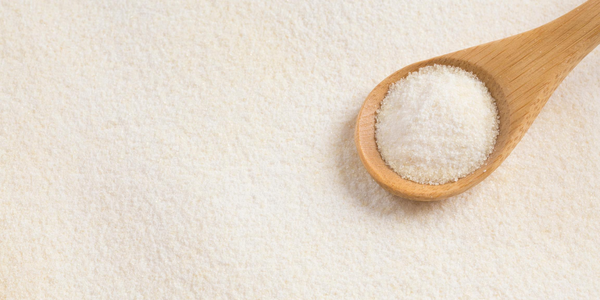
How Much Collagen Should I Take Daily?
Did you know that second to water, collagen is the most common substance in your body? It is a protein found in every organ and tissue, highly concentrated in your skin, internal organs, bones, and connective tissue, helping these tissues withstand all the tension and stretching your body endures. In fact, some types of collagen, including Type 1, are up to 10 times stronger than steel.
There are at least 28 different types of collagen in your body, but the most abundant types are Type 1, Type 2, and Type 3, making up about 90% of the total collagen found in your body.
Each type performs different and similar functions.
- Type 1 & Type 3 Collagen: Type 1 collagen is by far the most abundant type of collagen and is typically found together with Type 3 collagen. Found just about everywhere in your body (except cartilage), these two types of collagen dominate the space between your cells known as the extracellular matrix.
- Type 1’s three-dimensional structure, made up of macromolecules like collagen, cushion and separate your organs, protecting them from injury.
- Type 1 and Type 3 collagen are best known for improving the elasticity and hydration of your skin, giving you a more youthful appearance. And they’re also excellent at maintaining the integrity of your spine, muscles, and eyes. This dynamic duo is also especially good at healing the lining of your gut.
- Type 2 Collagen: Type 2 collagen is the major type of collagen found in your cartilage. Making up at least 50% of the protein in your cartilage, Type 2 collagen is hugely important in supporting the health of your bones and joints.
- The unique formation of Type 2 collagen is rigid, yet flexible and strong, giving your joints the ability to absorb the shock of constant compression.
Together, these three types of collagen dominate the tissues in your body.
HEALTH BENEFITS OF TAKING COLLAGEN PEPTIDES DAILY
By the time you hit your 30s, you can lose up to 1.5% of collagen each year. This loss might not seem like much, but it really adds up over time. Besides your age, collagen is depleted through other factors like pollution, high-sugar diets, and even certain medical conditions preventing your body from making needed collagen. Knowing how crucial healthy collagen is to our bodies, let’s examine the benefits that can be achieved taking collagen daily.
- Improves skin elasticity, hydration, and overall appearance
- Tones and sculpts lean muscle
- Supports healthy and strong nails and hair
- Increases joint strength and flexibility and relieves pain
- Increases gut health and improves digestion
- Increases energy
- Enhances brain health
- Promotes heart health
- Prevents bone loss
- Promotes a healthy weight
If you’ve searched information on collagen supplements, you’ve likely run into collagen “peptides.” Hydrolysis breaks up the amino acids in collagen, making their chains much shorter. These shorter chains are called “peptides.”
Collagen peptides are much more bioavailable to your body and easier on your digestive system. They’re pretty much odorless and tasteless and dissolve easily in any liquid because of their tiny size.
Adding collagen peptides to anything you consume is as easy as stirring it into whatever you’re making, from coffee to soup to smoothies.
BUT... DO YOU NEED TO TAKE A COLLAGEN SUPPLEMENT DAILY?
While collagen can be an important supplement to incorporate into your nutrition plan, you want to ensure that you're taking the right amount to reap the benefits.
First, start by examining your existing diet since many of the benefits of collagen are already found in foods such as
- Vitamin A: Largely found in orange fruits and veggies like carrots, cantaloupe, and sweet potatoes, foods rich in vitamin A help by restoring damaged collagen.
- Vitamin C: This antioxidant-rich vitamin, found in foods like bell peppers, broccoli, and citrus fruits, is extremely important for your body to produce collagen. Vitamin C also helps by neutralizing free-radicals, preventing them from breaking down collagen in your body.
- Dark leafy greens: Their high chlorophyll content (what makes them green) promotes collagen synthesis, and their high amount of skin-loving antioxidants help protect you from free radicals.
- Lycopene: Red veggies boost your collagen production because they’re full of lycopene – think red peppers, tomatoes, and beets. They also protect you from the effects of sun-damage, or overexposure to ultraviolet rays. Too much exposure to ultraviolet rays is a big factor in the depletion of collagen in your body.
- Berries: All types of berries work by both detoxifying your body of skin-damaging free radicals and boosting collagen levels.
- Sulfur: This mineral is excellent at synthesizing collagen. Garlic is one of the best sources of sulfur you can find, but there are other sources like eggs, onions, cabbage, and broccoli. Your body actually can’t produce collagen without sulfur, so be sure to get enough of this mineral.
- Bone Broth: Full of glycine and proline, as well as growth factors called glycosaminoglycans, bone broth is incredibly good for you and its benefits go beyond providing your body with collagen.
If you’re like most of us, your diet isn’t perfect all the time, so you may be considering a collagen supplement. In this case, be sure to research the different supplements on the market carefully.
- Most collagen protein powders/supplements are not “complete proteins” and lack total nutrients the body needs, especially for weight loss.
- You want a protein that will help you achieve your fitness/weight loss goals. If you’re looking to lose weight, start educating yourself about complete proteins and amino acids and see why it’s best to consume collagen with complete proteins.
COLLAGEN WITHIN A COMPLETE PROTEIN BLEND
Amino acids are organic compounds known as the building blocks of protein. There are 20 different amino acids that bond together in a chain to form a protein. Eleven of those amino acids are produced naturally by our bodies. The other nine, known as essential amino acids, we need to get through food or supplements. These essential amino acids make up a “complete protein.”
Transformation Protein’s amino-optimized protein powder formula, containing collagen peptides, has been perfected over time and includes all nine essential amino acids in one product. Not only do you get your daily boost of collagen, you also enhance your nutrition overall with a protein powder loaded with body-enhancing benefits.
It’s best to consume a mix of normal and fast-digesting protein after a workout. Transformation Protein contains 30 grams of both types of protein per serving, blending natural egg white protein and collagen peptide, and plant-based proteins.